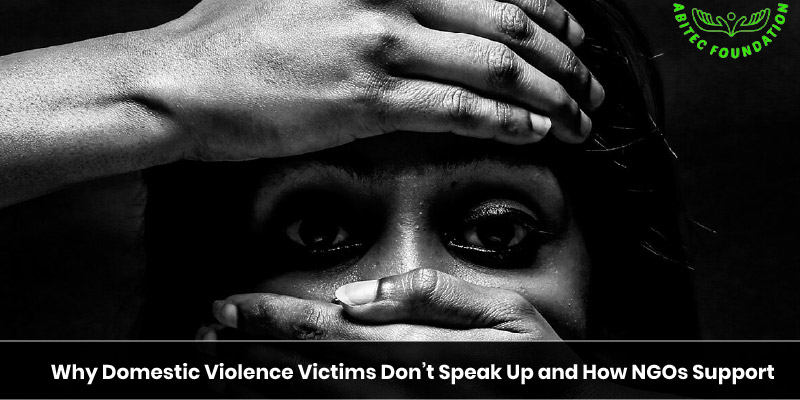For survivors, speaking about abuse can be the most difficult step. Fear, embarrassment, and shame can keep even the strongest voices quiet. Support should always be there, so no one bears that silence by themselves. A domestic violence prevention NGO plays a crucial role in breaking this silence, providing both protection and practical ways to recover.
Why do survivors often remain quiet, and how do NGOs provide the support that helps them speak safely?
Fear of Not Being Believed
Many survivors keep silent because they worry people won’t believe their story. Watching others be blamed or doubted can make it even harder. Holding such a secret can feel very lonely. Imagine holding a painful secret and not knowing if anyone will really hear you.
Emotional Ties to the Abuser
Abuse is complicated. Survivors can have strong feelings for their abuser, whether a partner, family member, or respected person. Years of manipulation and gaslighting can make these feelings confusing. Domestic violence prevention helps untangle these complex emotions and supports victims as they take careful steps towards independence.
Financial Dependence
For many, money is another chain that keeps them silent. Some survivors live with their abuser, share money, or care for children together, which can make leaving feel impossible. Abusers use money to control survivors. NGOs help by providing emergency money, housing support, and financial training. This allows survivors to feel in control and see a way ahead.
You Might Like: The Importance of Community Empowerment Foundation in Rural Areas
Shame and Self-Blame
Many survivors carry guilt, wrongly thinking they were responsible. Abuse is never their fault—it is always the abuser’s choice. NGOs help through support groups and therapy so survivors can learn it’s not their fault and start to feel better about themselves.
Fear of Retaliation
Fear keeps people from speaking. Many survivors believe their abuser will harm them, their children, or their loved ones if they speak up. The time just before or after leaving is especially dangerous. Survivors get help from NGOs to plan for safety, access legal protection, and secure safe places to stay. This means they are not alone in facing risks.
Cultural and Religious Pressures
Culture and faith can sometimes create extra barriers, discouraging people from leaving abusive relationships. Pressure to protect family or community honour can keep survivors quiet. Support organisations understand these challenges and keep survivors safe while respecting their beliefs.
Other Barriers
Survivors also face worries about how speaking out might affect their families, concerns over legal systems that feel overwhelming, and trauma-related memory gaps that make telling their story difficult. Past experiences of being dismissed often keep survivors quiet. Fears about jobs or losing community support make it worse.
How NGOs Help Survivors Find Their Voice
Victims staying silent is not a weakness; it’s often how they protect themselves. This is why NGOs help survivors so much. They:
- Make safe spaces where survivors can speak freely without being judged.
- Provide support that understands trauma and helps with fear, guilt, and emotional struggles.
- Offer help with money, housing, and legal issues to make leaving easier.
- Run awareness campaigns to challenge stigma and shift harmful cultural norms.
- Teach volunteers and communities to listen, believe survivors, and give real support.
- Build survivor networks so people don’t have to face their journey alone.
Through these actions, NGOs give survivors not only resources but also dignity, reminding them that their voice deserves to be heard.
Summing Up
No matter how resilient someone may be, speaking out against abuse can feel out of reach. Fear, shame, and reliance on the abuser often keep victims silent. The impact of abuse stays long after it happens, affecting body and mind. Support services are essential to help them. A domestic violence prevention NGO can be a lifeline for survivors, changing silence into courage and fear into hope. Through belief, protection, and advocacy, NGOs help transform fear into empowerment and silence into action.
If you or someone you know needs help, reach out to Abitec Foundation today. Partner with us today!
Frequently Asked Questions
- What is domestic violence prevention?
It is the effort to stop abuse in homes through awareness, support, and legal protection.
- How can a domestic violence prevention NGO help?
They provide counselling, safe spaces, legal aid, and resources to support survivors and prevent abuse.
- What are some ways to prevent domestic violence in communities?
Education, awareness campaigns, support networks, and early intervention programs help reduce domestic abuse.

